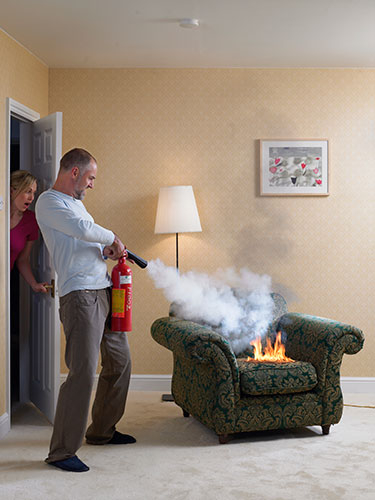
Household Insurance ‐ What It Covers, What It Doesn’t
Lenders require homeowners to carry a minimum amount of insurance coverage to protect the investment they have made. For many homeowners purchasing homeowner’s insurance is a part of the hectic process of purchasing their home. Often the homeowner does not take the time to thoroughly look over what their homeowner’s policy covers. Household insurance policies are typically made up of several different kinds of coverage protecting different types of assets. Property insurance directly covers the property, meaning the land, the structure itself and the contents, and liability insurance covers accidents that may happen on the property.
The property coverage of a home owner’s policy includes coverage for the dwelling, other structures, personal property and loss of use. The dwelling portion of the policy covers the value of the dwelling itself. Dwelling coverage does not include the land the dwelling is on. The other structure part of the policy covers other buildings on the property. To be covered by homeowner’s insurance, these structures may not be used for business. Examples of these structures typically include detached garages, sheds, gazebos and decks.
The personal property section of the policy covers the personal possessions the owner has on the property. Personal property insurance includes specific limits for specific items such as jewelry and electronics. Homeowners should review this list carefully and discuss any items they with values above those limits with their insurance agent or broker. High value items often require an additional rider to cover the item. The final coverage included in household insurance is loss of use coverage. Loss of use coverage covers damages caused by the loss of rental income the property is generating. Loss of use coverage provides coverage for additional expenses based on the fair rental value of the property.
The property liability coverage of a household insurance policy protects the homeowner’s assets from damages assessed as a result of an accident on the property. Property liability insurance protects guests on the property if they become injured as the result of an accident. Liability insurance will cover medical claims of the injured party by paying for damages. Property liability insurance transfers this risk from the insured to the insurance company. Property liability coverage levels should be discussed with a local insurance agent or broker to make sure the homeowner is adequately protected to their comfort level and not just the minimums required by the lender.